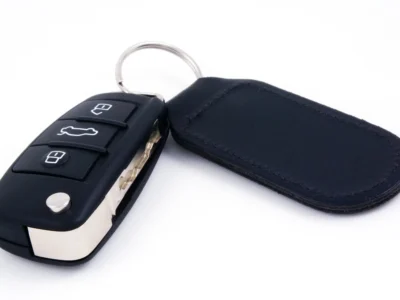
Ford Fiesta Jerks When Accelerating: Complete Diagnosis & Repair Guide

When a Ford Fiesta jerks during acceleration, most drivers feel it instantly — that sudden stumble, hesitation, or sharp jolt that disrupts an otherwise smooth drive. We’ve crafted this comprehensive guide to walk you through every credible cause, every symptom to look for, and every practical fix that helps restore your Fiesta’s performance. Our mission is simple: deliver the internet’s most complete, accurate, and helpful explanation of why a Ford Fiesta jerks under load — and give you the clarity to solve it with confidence.
Understanding Jerking During Acceleration
Jerking is the engine’s way of telling you something is interrupting proper combustion, fuel flow, ignition, timing, or drivetrain alignment. When one or more of these systems fall out of harmony, the Fiesta responds with hesitation, bogging, stuttering, surging, or misfiring — particularly noticeable during acceleration, when the engine demands precision and power.
To help you quickly narrow down the culprit, start with this diagnostic overview.
Quick Diagnostic Overview for Ford Fiesta Jerking
This table summarises the most common causes and the trouble codes often associated with them.
| Cause | Possible OBD-II Codes | Key Indicators |
|---|---|---|
| Spark Plugs | P0300, P0301–P0304 | Noticeable misfire when revving parked |
| Coil Packs | P0300, P0301–P0304 | Rough idle, poor mileage, jerking at low RPM |
| Plug Wires | P0300, P030X | Visible spark “jumping” in dark conditions |
| Catalytic Converter | P0420 | Reduced top speed, exhaust restriction |
| O2 Sensor / Mixture Issues | P0171, P0172, P0150–P0152 | Lean/rich mixture, unstable rpm |
| Engine Timing | P0340 | Slapping noise under timing cover |
| Motor/Transmission Mount | No codes | Jerks when shifting, accelerating or braking |
| Clogged Air Filter | No codes | Weak throttle response |
| Low Fuel Pressure | Fuel-related codes | Hesitation under load, hard starts |
| Fuel Injector Fault | P0171, P0174 | Intermittent power loss, jerking on throttle lift |
Complete Causes of Jerking During Acceleration in a Ford Fiesta
Below is a deep, authoritative breakdown of each system that can cause jerking, with detailed symptoms and repair guidance.
Misfiring Engine
A misfire is the number one cause of jerking in a Ford Fiesta. Combustion requires three perfect ingredients: air, fuel, and spark. When spark delivery falters, the engine stumbles under load, causing noticeable jerking especially between 1,500–3,000 RPM.
Spark Plug Failure
Spark plugs degrade over time due to heat, carbon buildup, oil contamination, or incorrect plug types.
Typical symptoms include:
- Jerking or stumbling under acceleration
- Rough idle
- Poor fuel economy
- Occasional popping from the exhaust
- Misfire codes (P0300–P030X)
Fix:
Replace all spark plugs as a set. Ensure correct heat range and electrode type according to Fiesta engine variant (1.0 EcoBoost, 1.25, 1.6 Ti-VCT, etc.).
Coil Pack Failure
Coil packs generate the spark energy. A weak or intermittent coil triggers jerks whenever cylinder load increases.
Signs include:
- Heavy hesitation
- Engine shakes under load
- Misfire noticeable even when revving while parked
- DTCs P0300 or P030X
Fix:
Swap coil packs between cylinders to confirm failure, then replace defective units. Always check wiring loom for chafing.
Faulty Spark Plug Wires
If your Fiesta uses plug wires, worn insulation can cause arcing — which becomes more pronounced at night.
Fix:
Inspect in darkness and replace wires showing arcing or cracking.
The Fiesta’s exhaust system plays a vital role in maintaining proper air-fuel control.
Clogged Catalytic Converter
A blocked catalytic converter creates massive backpressure. The engine effectively suffocates and jerks when accelerating.
Symptoms:
You may be interested in reading Common Audi A1 1.6 TDI Problems, Symptoms, and Fixes: The Definitive Expert Guide
Common Audi A1 1.6 TDI Problems, Symptoms, and Fixes: The Definitive Expert Guide- Jerking especially at highway speeds
- Low top speed (often below 50–60 mph)
- Rotten egg smell
- Extreme heat from catalytic converter
- P0420 code
Fix:
Check temperature differential before/after the converter, inspect for rattling internally, and replace if clogged.
Faulty Oxygen Sensors
Defective O2 sensors distort the fuel mixture, causing lean or rich running conditions.
Common codes: P0150, P0151, P0152, P0171, P0172.
Fix:
Test live data with a scanner. Replace the upstream sensor if voltage is stuck high/low or responds slowly.
Damaged or Pinched Exhaust Pipe
Off-road impacts, speed bumps, or debris can crush the exhaust path.
Fix:
Inspect underbody for crushed sections and replace or repair the affected pipe.
Engine Timing Problems
Modern Ford Fiesta engines rely on cam and crank sensors to control spark timing. If timing is off, jerking is guaranteed.
Timing Chain Skip or Stretch
Symptoms of a timing chain that has jumped a tooth:
- Metallic slapping noise behind timing cover
- P0340 code
- Severe hesitation under acceleration
- Difficulty starting
Fix:
Inspect chain alignment using timing marks. Replace chain, guides, and tensioner if misaligned.
Camshaft or Crankshaft Sensor Fault
Sensors that misread timing create irregular spark events.
Fix:
Use scan data to verify RPM and cam position signals. Replace faulty sensors.
Fuel Delivery Issues
Jerking often appears when the Fiesta cannot supply enough fuel to match throttle demand.
Low Fuel Pressure
Caused by:
- Weak fuel pump
- Clogged fuel filter
- Failing fuel pressure regulator
Symptoms:
- Jerking under load
- Long crank times
- Weak acceleration
- Possible lean codes (P0171)
Fix:
Check pressure at the fuel rail. Replace pump or filter as needed.
Faulty or Clogged Fuel Injectors
Injectors may clog due to carbon deposits or contaminated fuel.
Signs include:
You may be interested in reading Common Audi A1 1.6 TDI Problems, Symptoms, and Fixes: The Definitive Expert Guide
Common Audi A1 1.6 TDI Problems, Symptoms, and Fixes: The Definitive Expert Guide Audi A1 Glow Plug Light Flashing: The Complete Guide to What It Means & How to Fix It
Audi A1 Glow Plug Light Flashing: The Complete Guide to What It Means & How to Fix It- Jerking during light acceleration
- Intermittent surging
- Rough idle
- P0171 or P0174 codes
Fix:
Perform injector balance testing, ultrasonic cleaning, or replacement.
Air Intake System Issues
If the engine can’t breathe correctly, combustion falters.
Clogged Air Filter
A neglected air filter blocks airflow, causing sluggish throttle response and jerking.
Fix:
Inspect and replace filter if dirty or damp.
Blocked Intake Ducts
Debris such as leaves, plastic bags, or rodents can restrict intake flow.
Fix:
Inspect intake snorkel and housing.
Faulty Motor or Transmission Mounts
Sometimes jerking isn’t caused by misfires or fuel issues at all. Instead, the engine physically shifts excessively due to broken mounts, creating a sudden “jerk” feeling.
Symptoms:
- Jerking when shifting into gear
- Clunking on acceleration or braking
- Excessive engine movement
- No OBD-II codes
Fix:
Inspect upper and lower mounts for cracking or collapsed rubber. Replace as required.
Troubleshooting Process We Recommend
To identify the cause efficiently:
- Scan for OBD-II codes first.
- If misfire codes appear, begin with plugs, coils, and wires.
- If mixture or O2 codes appear, test sensors and inspect catalytic converter.
- If no codes appear, inspect mounts and air intake.
- Test fuel pressure if symptoms worsen under load.
- Inspect timing components if misfires persist after ignition/fuel repairs.
This process eliminates guesswork and ensures every repair moves you forward.
Conclusion
When your Ford Fiesta jerks during acceleration, the solution always lies in restoring the precise balance between air, fuel, spark, timing, and mechanical stability. By using the symptoms, diagnostics, and repair strategies outlined in this guide, you’re equipped to pinpoint the exact cause — whether it’s a misfire, fuel starvation, exhaust restriction, timing issue, or worn motor mount.
A systematic approach is the surest way to bring your Fiesta back to smooth, reliable performance.
FAQs
Why does my Ford Fiesta jerk only at low speeds?
Low-speed jerking commonly results from misfires, coil pack failure, or a partially clogged injector.
Can I drive a Fiesta that jerks under acceleration?
It’s risky — unresolved misfires can damage the catalytic converter, and fuel issues may worsen.
What’s the most common cause of jerking in the Fiesta?
Ignition issues, especially worn spark plugs or failing coil packs.
Does a bad O2 sensor cause jerking?
Yes. Incorrect mixture readings from a bad sensor can cause lean/rich operation and noticeable hesitation.
You may be interested in reading Common Audi A1 1.6 TDI Problems, Symptoms, and Fixes: The Definitive Expert Guide
Common Audi A1 1.6 TDI Problems, Symptoms, and Fixes: The Definitive Expert Guide Audi A1 Glow Plug Light Flashing: The Complete Guide to What It Means & How to Fix It
Audi A1 Glow Plug Light Flashing: The Complete Guide to What It Means & How to Fix It Audi A1 Vehicle Start System Fault: Complete Guide to Causes, Fixes, and Costs
Audi A1 Vehicle Start System Fault: Complete Guide to Causes, Fixes, and CostsWhy does my Fiesta jerk without showing any error codes?
This usually points to failed engine/transmission mounts or air intake obstructions.
If you want to know other articles similar to Ford Fiesta Jerks When Accelerating: Complete Diagnosis & Repair Guide you can visit the category Common Problems.
Leave a Reply






More content of your interest